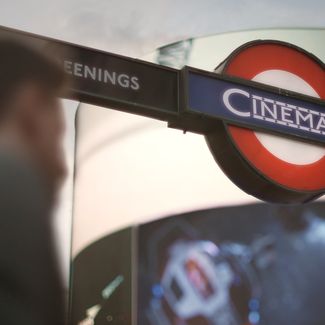
How to balance fun and rules after Freedom Day
Experience-led brands have now re-opened to crowds, but with safety always in mind it's a balance of communicating fun with taking care.
22 July 2021
There were mixed emotions across England as the so-called “Freedom Day” arrived on Monday. While there was undoubted excitement among those queuing outside nightclubs as Sunday night turned into Monday morning, theatre impresario Andrew Lloyd Webber dubbed it “closure day” after positive Covid tests forced the cancellation of performances of his new staging of Cinderella.
This contrast also points to a range of emotions among people across the country. Xavier Rees, the chief executive of Havas London, says: “We need to put ourselves in their shoes. The reality is that everyone has a different personal view of whether Monday was really Freedom Day, what’s safe for them, whether they feel anxious, excited or relieved. It’s harder than ever to tell which category people fall into.”
There’s no doubt, however, that the easing of some Covid restrictions heralds new opportunities for experience-based brands, especially in events, hospitality and sport. Travel companies also ran campaigns to mark the occasion, notable work included VCCP London’s ‘Welcome Back’ activity for Transport for London, encouraging people to take part in experiences at destinations across the network.
In light of government testing of crowds at sporting events, we’ve also seen prominent campaigns including ‘It’s a Wimbledon Thing’, from McCann London, that play on the passions of fans and their demand for live experiences.
Jon Goulding, chief executive of Atomic London, which works for experience-led clients including Madame Tussauds and Virgin Experience Group, and for airline group Star Alliance, sees Freedom Day and some relaxation of rules as part of a progression through three stages as we emerge from Covid lockdowns – “reassurance”, “re-enablement”, and “re-empowerment”.
Goulding says: “We’ve just left the reassurance stage – ‘if you’re coming to one of our experiences we’re sticking to the rules, we’re cleaning everything’. That’s been consistent for pretty much the past 15 months. What has changed, not just with Freedom Day but big events like the Euro’s starting again, is a move to the re-enablement phase. That’s important because essentially people’s joy from an experience comes not just from what it was like on the day but how they felt about it before they got there. “
With this in mind, Atomic is working with clients on communications that help people feel good about the experience ahead of arrival. Goulding cites Tussaud’s Chessington World of Adventures as an example: “If you turn up and there are four-hour queues where there used to be two-hour queues, and you don’t have the right paperwork, it becomes a real pain, and you hate that experience because of it. So the re-enablement phase helps people get armed-up with all the stuff that makes them positive about the event before they get there.”
This, he says, anticipates the eventual third phase - re-empowerment: “There are going to be things that were never possible before because we’ve had to change infrastructures and ways of working. That’s what a lot of experience brands are looking at – what is the new possibility once all this has gone away?”
But was there a right creative tone to set with work that broke ahead of Freedom Day? Havas London’s latest campaign for the British Beer Alliance sought to both encourage people back into their local pubs and persuade the Chancellor to help the sector financially with a series of heart-warming scenes in pubs across the country.
Xavier Rees says: “From a brand perspective it’s fine to talk about all the amazing emotional benefits of particular experiences or venues – it just has to be done with great responsibility.”
He adds: “Brands need to think how they visually show people socialising, and out and about, so it’s in line with government legislation, which can change quickly so it’s best to err on the cautious side. But that doesn’t mean that you can’t tell stories and write advertising that shows people enjoying the experience. I think you can. “
Helen Rainford is managing partner at Smarts, an agency owned by MSQ Partners, and works with clients including MSC Cruises. On the tone of message, she says: “The challenge brands have is showing people what they can offer, and what they could experience, that they couldn’t six months ago, while balancing that with minimal risk. It’s wider than a marketing challenge because to me it’s a commercial risk – if you’re too relaxed, you come across as reckless and careless. If you’re too strict, you come across as dampening the fun.”
She adds: “What we’re encouraging our clients to do more so than ever before is to step outside their brand bubble and look at the real world. Look at the cultural conversations that are going on, what people are feeling and saying, and be relatable. All brands need to strike a tone that’s right for them. Some can be more irreverent than others but being human in all this, and looking out, is the most important thing.”
In some messaging, Rainford says, experience brands shouldn’t be afraid to “keep it really simple” while being nimble to reflect constantly changing rules. There’s a danger, however, Xavier Rees argues in focusing too intently on safety issues and hygiene in brand campaigns: “The worst that can happen is that brands are reduced to communicating in a deeply functional way.”
However, that doesn’t mean it’s time for a free-for-all in brand advertising. Given that the implications of Freedom Day are many and varied for people across England, Rees’ suggested emphasis on “responsible enjoyment” in campaigns from experience-led brands offers a pragmatic way forward.


